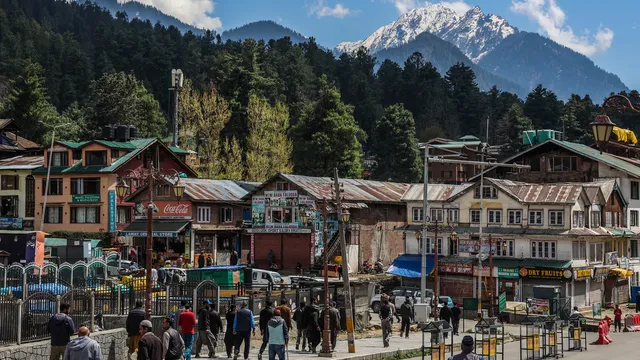
Modi vows justice after deadly terror attack in Pahalgam
2025-04-26 09:00- A terror attack on April 22, 2025, in Pahalgam, Jammu and Kashmir, resulted in the deaths of 26 individuals, including tourists.
- Prime Minister Narendra Modi condemned the attack and pledged to bring the perpetrators to justice, stating that their evil agenda would not succeed.
- The incident has led to international condemnation and raised concerns over security and tourism in the region.
Express your sentiment!
Insights
On April 22, 2025, a brutal terror attack occurred in Pahalgam, Jammu and Kashmir, targeting tourists. The assailants killed 26 individuals, including one Nepali citizen, and injured many others. Prime Minister Narendra Modi expressed his strong condemnation of the incident and conveyed his condolences to the families of the victims. He stated that those responsible would face justice, emphasizing that the evil agenda behind such attacks would not succeed. The attack has prompted widespread global condemnation, including expressions of solidarity from dignitaries such as U.S. Vice President JD Vance and Indian President Droupadi Murmu, underscoring the severity and inhumanity of such acts. The National Human Rights Commission has also condemned the attack, calling for decisive action against terrorism. The perpetrators are believed to belong to The Resistance Front, a Pakistan-based terror group, and the Indian government is preparing a strong diplomatic and security response, including a review of the Indus Waters Treaty. Prime Minister Modi's commitment to addressing terrorism reflects a broader strategy of robust retaliation against acts of violence against the nation.
Contexts
The impact of terrorism on tourism in Kashmir has been profound and complex, affecting various dimensions of the social and economic fabric of the region. Over the past decades, ongoing instances of violence and unrest have not only deterred potential travelers but have also led to significant disruptions in the local economy heavily reliant on tourism. Kashmir, known for its stunning landscapes and rich cultural heritage, saw a flourishing tourism industry prior to the surge of terrorist activities in the late 20th century. However, attracted by its natural beauty, the region has continuously struggled to maintain a stable environment that is conducive to tourism. The repercussions of terrorism have manifested in several ways, including a sharp decline in tourist arrivals. Safety concerns have led potential visitors to choose alternative destinations perceived as safer options. This decline has further exacerbated the challenges faced by local businesses, such as hotels, restaurants, and handicraft vendors, that depend largely on the influx of tourists for their livelihoods. The cyclical nature of terrorism and tourism demonstrates how instability can hinder economic development, leading to job losses and increased poverty levels within the local communities. In response to the challenges posed by the terrorism-induced downturn in tourism, efforts have been made by various stakeholders to revitalize the tourism sector. The government, alongside local organizations, has initiated multiple campaigns aimed at promoting Kashmir as a tourism destination. Additionally, measures such as enhanced security protocols and better infrastructure are being developed to assure potential tourists of their safety while visiting the region. However, these strategies must be implemented with caution, as they require significant investment and commitment from both public and private sectors to be effective in rebuilding trust with potential tourists. Moving forward, addressing the impact of terrorism on tourism in Kashmir will necessitate a comprehensive approach that focuses not only on enhancing security but also on fostering community resilience. Engagement with local populations in tourism planning can help ensure that the benefits of tourism are broadly shared, reducing the risk of resentment that can contribute to further unrest. Ultimately, while the challenges remain significant, with concerted efforts, it is possible to rejuvenate the tourism sector in Kashmir, helping to stabilize the economy and promote peace within the region.